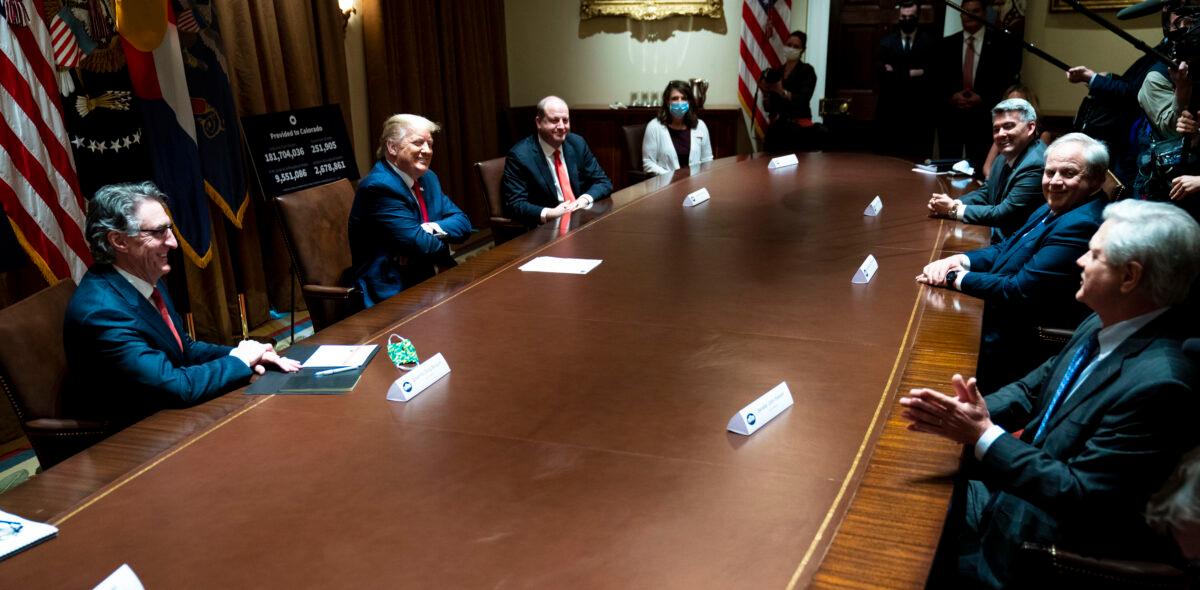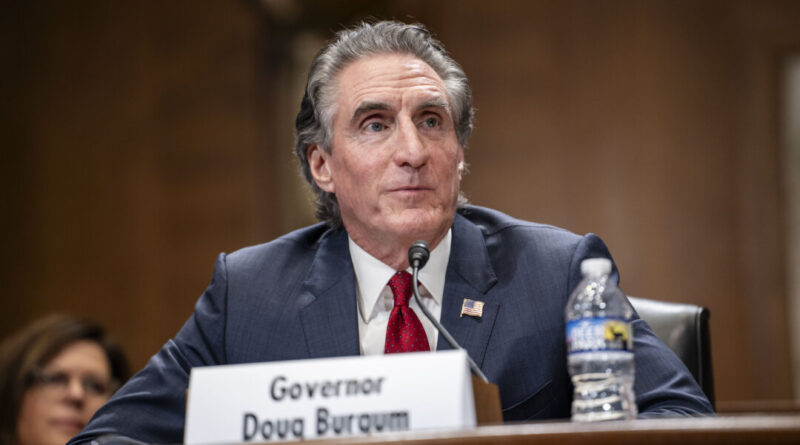Potential Trump Energy Czar Plans to Increase Oil and Gas Leases on Federal Lands and Waters
Doug Burgum, a contender for Interior chief, emphasizes the concept of ‘innovation neutrality’ as a strategy to enhance electric grid capacity and restore equilibrium in the nation’s energy policies.
On January 16, during discussions with key senators, Interior secretary nominee Doug Burgum expressed his intention to be “aggressive” in opening public lands for oil and gas drilling. He aims to address an “imbalance” in federal leasing policies that he believes is hindering the country’s ability to generate the essential base-load electricity required to compete in “the AI race with China.”
Burgum pointed out that one of the quickest and most cost-effective methods to increase base-load electricity would be to lift limitations on oil and gas leasing across the 500 million acres of public lands and 1.7 billion offshore acres under his management as the DOI secretary and chair of President-elect Donald Trump’s newly established National Energy Council.
According to Burgum, without base-load reliability, the development of intermittent renewable energy could divert public and private investments away from maintaining critical energy infrastructure, such as natural gas pipelines.
“President Trump has clearly articulated his concerns regarding the substantial tax incentives directed towards certain energy forms, which have worsened the existing imbalance we are facing,” Burgum added.
Burgum asserted that it is essential for the government to uphold “innovation neutrality” when implementing energy policies, ensuring that the market drives decisions without interference.
“Two hundred thousand gas stations were established without any public funding because the market developed those,” he stated. “In the realm of energy, we require a comprehensive approach that encompasses all options, including fossil fuels.”
Senator Angus King (I-Maine), highlighting the growing wind energy sector in Maine and its contribution of over 35 percent to North Dakota’s electricity, asserted that the key to unlocking affordable renewable energy lies in developing storage solutions to succeed in the quest for more durable batteries.
“Intermittent energy combined with storage equals base load,” King remarked. “I do not want ‘base load’ to be perceived as negating renewable sources.”
“However, at present,” Burgum countered, renewable energy often incurs “much higher costs” compared to sources like natural gas.
As the DOI secretary and National Energy Council chair, Burgum will have to factor in costs when shaping energy policies. He noted that if an “all-of-the-above” strategy includes fossil fuels and ends up being “cheaper than subsidized renewables, those costs will be considered” in determining “a more advantageous direction,” he stated.
The constructive dialogue with senators addressed a range of challenges Burgum would face in managing the DOI’s 70,000 employees and its $18 billion budget.
As DOI secretary, he would establish policies for 11 different agencies and 14 offices, including the Bureau of Land Management, National Park Service, U.S. Fish & Wildlife Service, U.S. Geological Survey, Bureau of Ocean Energy Management, and the Office of Surface Mining Reclamation and Enforcement.

North Dakota Gov. Doug Burgum (L), President Donald Trump (2nd L), and Colorado Gov. Jared Polis (3rd L) during a meeting in the Cabinet Room of the White House in Washington on May 13, 2020. Doug Mills/Pool/Getty Images
Awaiting Directives
Throughout the hearing, senators inquired about federal wildfire management strategies, oil and gas exploration in Alaska’s North Slope, the delisting of grizzly bears as endangered species in Wyoming and Montana, relationships with Native American tribes, the mining of critical minerals, preserving the country’s $2.1 trillion outdoors and recreation economy, and addressing deferred maintenance in national parks while navigating the complex web of laws, regulations, and rules influencing federal land use.
Doug Burgum, 68, a prosperous former software executive, gained prominence beyond North Dakota after launching his 2024 presidential campaign in June 2023. He exited the GOP primaries and endorsed Trump in December 2023.
He was speculated to be a potential vice-presidential pick for Trump after completing two terms as North Dakota’s governor, where his policy of “innovation over regulation” facilitated the Bakken shale oil boom while also attracting substantial investments in solar, wind, geothermal, hydrogen, and carbon capture technologies in the state.
Burgum refrained from commenting on the specific focus areas or membership of the National Energy Council, explaining that Trump would outline these details in an executive order, thus clarifying the council’s objectives.
However, the mission is already unmistakable.
“I can confidently say that we will have a land-use and energy policy grounded in national security,” he concluded.





